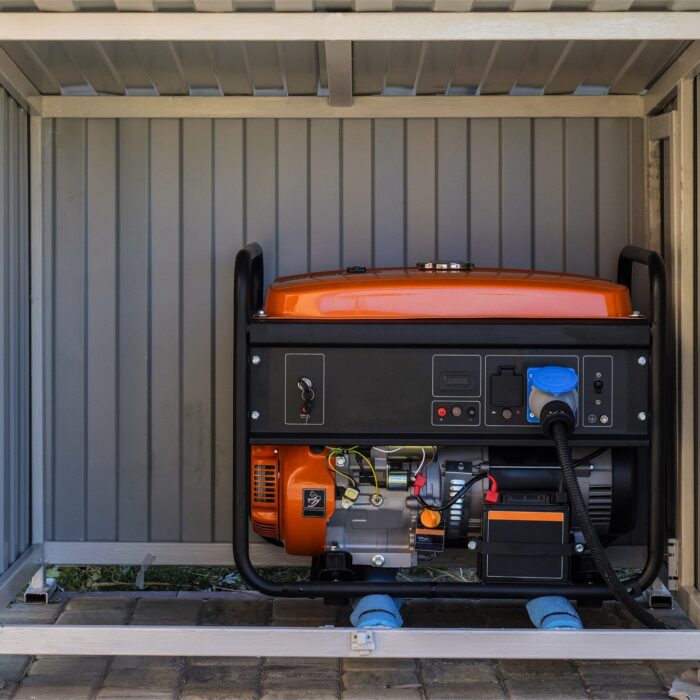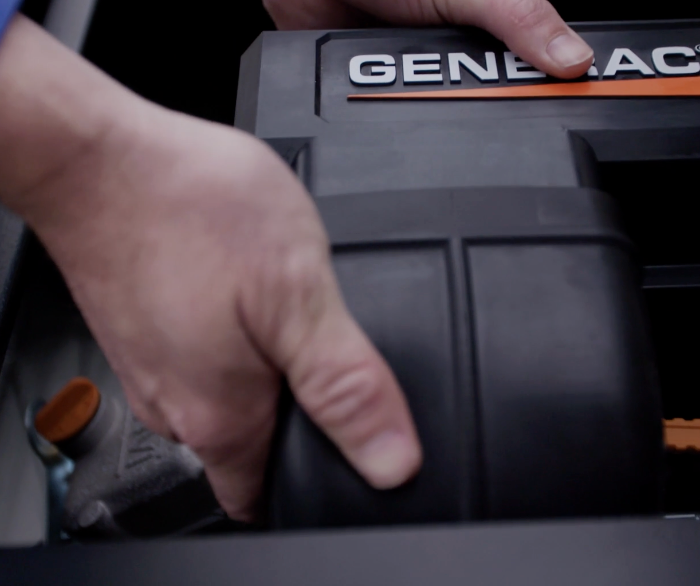Only about 15% of American homes have a backup power solution, which means that when a power outage strikes the majority of people are left without the ability to light their homes and power refrigerators, air conditioning units, and medical equipment.
A standby generator can be incredibly useful in a home – especially if you live somewhere that’s prone to power outages. They can keep you connected to the internet, ensure you have light and heating, and keep your refrigerator running so food doesn’t spoil.
With these pieces of equipment, however, you need to ensure you’re taking all of the proper safety precautions. People often wonder “can I put a standby generator in the garage?”
If you find yourself wondering the very same, keep reading through this guide as we cover everything you need to know.
Dangers of Running a Generator Indoors
Indoor generators can be helpful in power outages, but some generators can present very serious health and safety risks if not used properly. It’s important to understand these risks so you can choose the right standby generator and use it safely.
Carbon Monoxide Poisoning
This is one of the most well-known risks associated with generators, as some of them can produce carbon monoxide while running. This gas is incredibly harmful to humans.
You can breathe in carbon monoxide without realizing it because it’s completely colorless and odorless. If someone has enough carbon monoxide in their system, it can potentially be fatal.
Portable generators may produce harmful amounts of this gas, presenting a significant risk. A natural gas or propane generator, however, won’t release carbon monoxide fumes, making them much safer options.
Lack of Ventilation
Any generator that’s placed indoors is unlikely to have sufficient ventilation. Even ones that don’t produce large amounts of carbon monoxide should still be placed in the open air. To avoid any threat of illness to people or harm to structures near a generator, the widely accepted suggestion is to never place a generator indoors or under close coverings.
If a generator isn’t well-ventilated, there could be a risk of it overheating. As with any mechanical device, this could lead to various issues. A properly functioning generator shouldn’t get too warm as long as it’s not blocked in, so giving it space will allow it to keep running properly.
Toxic and Flammable Fumes
On top of carbon monoxide, some generators also produce other toxic fumes that no one would want to inhale. Unlike carbon monoxide, these other fumes can carry a strong odor, making them easier to detect.
The fumes released will depend on which generator you choose. Our standby generators are some of the safest on the market, and as long as they’re functioning properly, toxic fumes shouldn’t be of any concern.
Can You Put a Standby Generator in the Garage Safely?
The significance of generator safety cannot be overstated. Due to the associated risks, it is always advisable to install a generator outside. However, there are precautions you can take to enhance safety when it comes to standard operating procedures.
Install a Carbon Monoxide Detector in Every Room
As long as they’re functioning properly, our standby generators don’t release carbon monoxide. However, malfunctions do happen on occasion which could cause them to expel carbon monoxide into the air. If that were to happen, it’s important that you’re made aware as soon as possible so that the proper safety measures can be taken.
By installing a carbon monoxide detector near your generator, you will be quickly alerted if there’s an unusually high concentration of carbon monoxide in the air. If this happens, it indicates that there’s an issue with your generator and you’ll need to cease operation and have it inspected by a professional as soon as possible.
Regular maintenance will help prevent these types of malfunctions, as a technician can perform routine inspections of your generator for signs of damage or wear and tear. In these inspections, they’ll be able to let you know if any components are nearing failure as well as repair or replace those parts to ensure your generator is safe for operation.
Don’t Get Too Close When It’s Running
Generators produce a lot of power, and while they’re made to be as safe as possible, there can still be a level of risk when they’re running. While it’s in use, it’s best to avoid touching it.
This is especially important and worth highlighting to any children who spend time around your house in an effort to make sure that they know that it’s not something to play with.
Don’t Start the Generator Before It’s Properly Connected
When we install your generator, we’ll connect it to your home and make sure everything is in order before you can use it. There may be unforeseen issues, however, that delay this. It’s important to wait until we’ve given you the ‘okay’ before trying to use it.
Bear this in mind when having any maintenance and repair work done. The technician will let you know when it’s safe for operation again, so don’t try to use it before they do.
Don’t Overload the Generator
Make sure you read the manual for your generator so you understand its limits. Overloading a generator can put stress on it that could cause it to catch fire or explode. Before purchasing a generator, assess how much capacity you’ll need and research generators to find the right fit.
If you’re uncertain as to which generator to choose, a member of our team can inspect your home and help determine the best options available to you. This will help ensure you have a generator that’s powerful enough for your home without overdoing it.
Finding the Right Generator for Your Home
You’re no longer asking “can you put a standby generator in the garage?”, but you still might not know what generator to get for your home. There are plenty of options, but don’t let that confuse you.
Generator Supercenter provides turnkey installation of whole home generators along with maintenance and service. We can offer you guidance to help you find the perfect generator for your home. Contact us today to start your quote.





